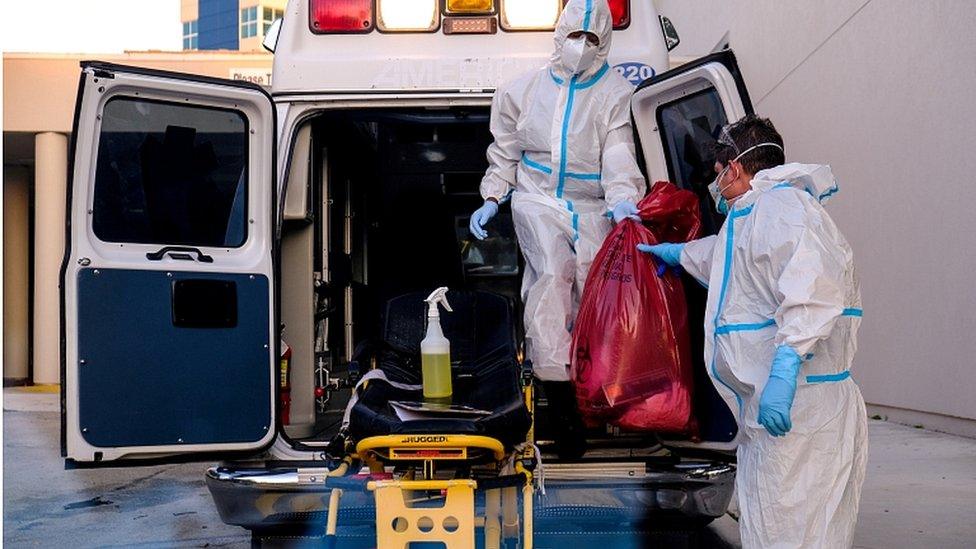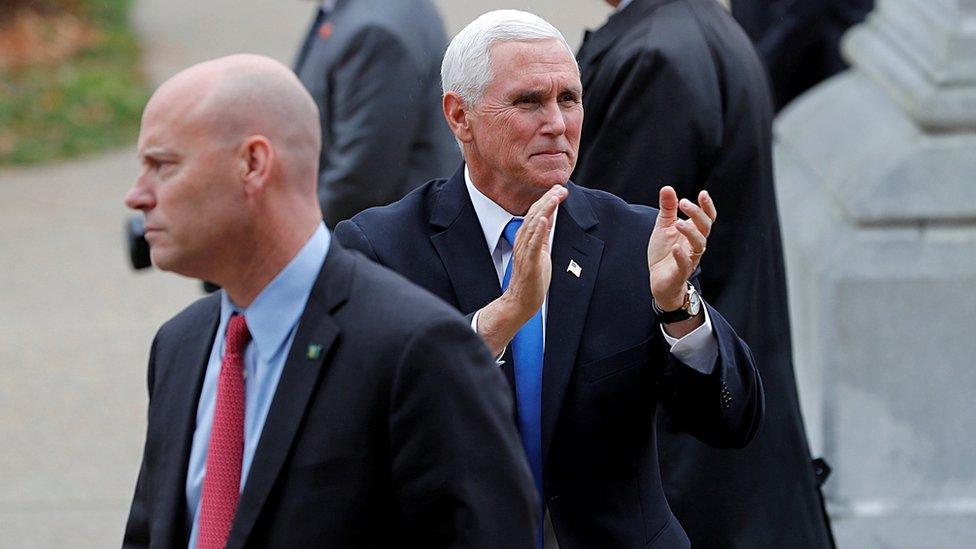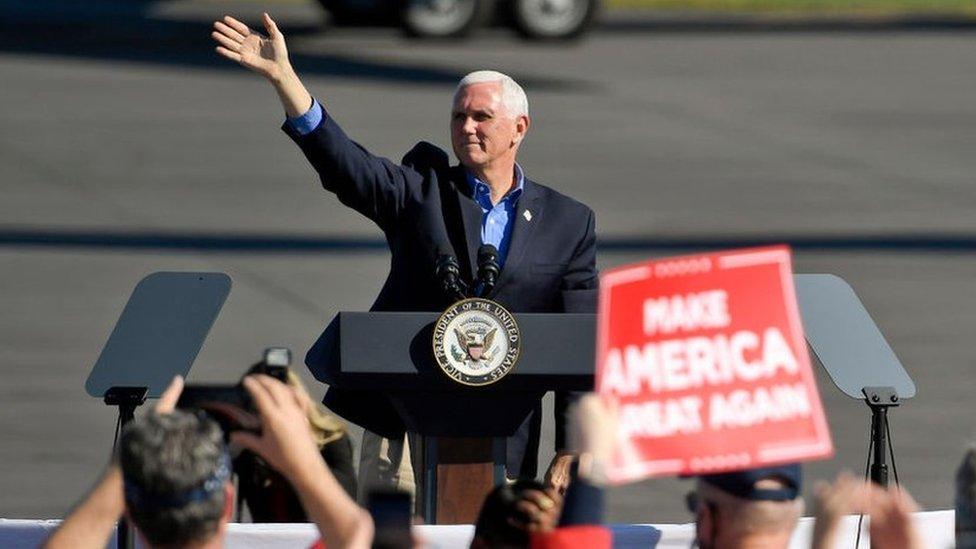Covid: Trump's chief of staff admits US cannot control pandemic
- Published

Covid-19 infections are surging in several states across the US
A senior aide to President Donald Trump has conceded that the US is "not going to control the pandemic".
Instead White House Chief of Staff Mark Meadows said Covid-19 could only be defeated by "mitigation areas" like vaccines and therapeutics.
His remarks come as coronavirus cases surge in the US, nine days before the presidential election.
Democratic presidential challenger Joe Biden said the White House was waving "the white flag of defeat".
He added that Mr Meadows' comments showed that the Trump administration had "given up on their basic duty to protect the American people".
In an interview with CNN, Mr Meadows said control of the virus was not a realistic goal because "it is a contagious virus just like the flu".
About 225,000 Americans have died since the pandemic began, the highest figure of any country.
The US recorded 83,718 new Covid-19 cases on Saturday, according to Johns Hopkins University, just short of the record 83,757 reported on Friday. Previously, the highest number of reported infections in a single day was 77,362 on 16 July.
What's happening on the campaign trail?
Mr Trump - who campaigned in North Carolina, Ohio and Wisconsin on Saturday - is scheduled to appear at two rallies in Pennsylvania on Monday, before making his way to Michigan, Wisconsin and Nebraska on Tuesday.
Vice-President Mike Pence has continued campaigning despite being in close contact with Marc Short, his chief of staff, who has tested positive for Covid-19.
Mr Pence and his wife both tested negative on Sunday, his office said.
Media reports say Pence adviser Marty Obst and at least two other members of staff have also recently tested positive. The cases have raised fresh questions about the White House's Covid-19 protocol, three weeks after President Trump was admitted to hospital with the virus before making a recovery.

Mr Pence pictured in 2019 with his chief of staff Marc Short, who has tested positive for Covid-19
Joe Biden, meanwhile, is expected to stay in his home state of Delaware on Monday. He is due to campaign in Georgia on Tuesday.
Addressing supporters in New Hampshire on Sunday, President Trump repeated his claim that the US was turning a corner with the pandemic, despite recording record numbers of infections and rising hospital admissions.
"We're coming around, we're rounding the turn, we have the vaccines, we have everything. Even without the vaccines, we're rounding the turn," the president told supporters, many of them not wearing face masks or observing social distancing.
No vaccine has yet completed clinical trials.
In an interview with CBS's 60 Minutes programme, which aired on Sunday, Mr Biden said that President Trump still had a chance of winning the election, even though the president is trailing him by an average of eight points in national polls.
He also accused the president of trying to delegitimise the election by casting doubt over the integrity of mail-in ballots.
Explaining the Electoral College and which voters will decide who wins
Mr Trump has been jetting between key swing states in recent days. Mr Biden's lead over him is much narrower in several of these states, which will decide the election.
How is coronavirus affecting the election?
America's coronavirus outbreak has become a key policy battleground ahead of the 3 November election, and contributed to a surge in postal and early in-person voting.
About 59 million ballots have already been cast, a record figure largely spurred by the pandemic.
US government scientist Dr Anthony Fauci says there could be a result in Covid vaccine trials by December
Speaking to the BBC on Sunday, top US infectious disease expert Dr Anthony Fauci said a Covid-19 vaccine could be available in the US before the end of the year if one proved to be "safe and effective", but that the first doses would go to people in order of priority.
He said it would take "several months into 2021" before the vaccine was more widely available.


- Published25 October 2020
